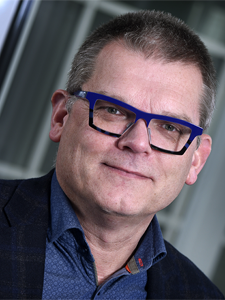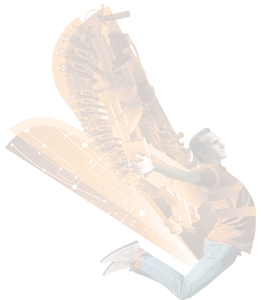Scientific Information

J.S. (Hans) Rietman
"Rehabilitation Technology, a mission driven change of action"
Physiatrist and professor in Rehabilitation Medicine & Technology at the faculty of Engineering Technology University of Twente
He performs his clinical work as a rehabilitation physician at Roessingh Center for Rehabilitation. He is also appointed at the research institute Roessingh Research and Development and adjunct professor at Northwestern University Chicago.
From 2014 till 2020 he was president of the Netherlands Society of Rehabilitation Medicine (NSRM).
His research focuses on the clinical use of technology in restoration of functions in patients with neurological disorders and patients with amputations of upper and lower extremities. He is actively involved in a diversity of (inter-) national projects focusing on Rehabilitation Robotics and Active Assistive Devices. Since 2018 he is leader of the national program Innovative Medical Devices Initiative (IMDI). Since 2019 he chairs the Mission team Mission 2 (transfer of healthcare to the living environment of people) from topsector Life Science and Health. Since 2021 he is clinical research lead and chair of the executive Committee of the interdisciplinary consortium of movement disorders and technologies ICMS. He is co-editor of the Dutch book of Rehabilitation Medicine for adults and the Dutch book of Amputation and Prosthetics of the lower extremities and (co)author of more than 100 Pubmed cited articles. H-Index: 35 (Google Scholar).
Lecture Title: Rehabilitation Technology, a mission driven change of action
Brief Description of Lecture:
In the coming decades, there will be a growing need for care for the aging society and people with chronic diseases and disabilities. At the same time, people coping with disabilities strive for autonomy and social participation. These challenges will have impact on costs of our healthcare system.
Until recently, medical technology and also rehabilitation technology were developed with the primary aim of improving the quality of diagnostics and therapy. This development was and is strongly supply oriented, but it has certainly led to an improvement in the quality of healthcare.
In 2018, the Netherlands Ministry of Health, Welfare and Sport published the report "The right care in the right place" and in 2019, the same ministry drafted the "Mission Health & Care". The main mission statement: By 2040, all Dutch people will be living in good health for at least five years longer, and the health inequalities between the lowest and highest socio-economic groups will have decreased by 30%. Despite the fact that 4 submissions cannot be seen in isolation from each other, for rehabilitation technology especially sub-mission 2 and 3 are important.
- In 2030 50% more care will be organised in people's own environment (instead of in care institutions), together with the network around people.
- By 2030, 25% more people with a chronic illness or life-long disability are able to participate in society as they wish.
New technical innovations within rehabilitation such as active training devices (robotics, gaming, virtual reality), active assistive devices (prostheses, exoskeletons, orthoses), monitoring and tele rehabilitation will actually improve the person’s abilities to remain independent. Technical improvements in sensors, actuators and artificial intelligence in these devices make them more and more functional when augmenting the human body. The interaction between the adaptive capabilities of a person and the adaptive capacities of the device will define the level of functional capability. The number of medical technologies used in home situations will increase significantly. And possibly most important: the user's demand for help and the social impact will guide the development of rehabilitation technology.

